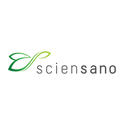Detecting infectious bacteria in animals
We detect the presence of infectious bacteria that cause diseases, chiefly in poultry, pigs, cattle and horses.
Whether it concerns bacteria affecting only animals (such as certain types of mycoplasma, mycobacteria, colibacilli or salmonella) or bacteria affecting both humans and animals (such as brucellosis, leptospirosis, bovine tuberculosis, anthrax and Q fever), our mission is to support the authorities in their fight against these pathologies. To this end, we offer our expertise and techniques to confirm and document suspicions established by the country’s clinical and veterinary laboratories.
To improve both the detection and knowledge of these pathogenic bacteria, we develop research activities in partnership with the academic world and the institutions concerned by these same problems. We continually evaluate our diagnostic capabilities as well as those of our partners through demanding quality standards.
Finally, we advise the country’s health authorities to help them control and fight the bacterial diseases for which we are responsible.
Want to know more?
To detect the presence of infectious diseases, we proceed either directly by culture or detection of DNA signatures of the bacteria from infected samples, or indirectly by demonstrating a specific immune response in exposed animals.










